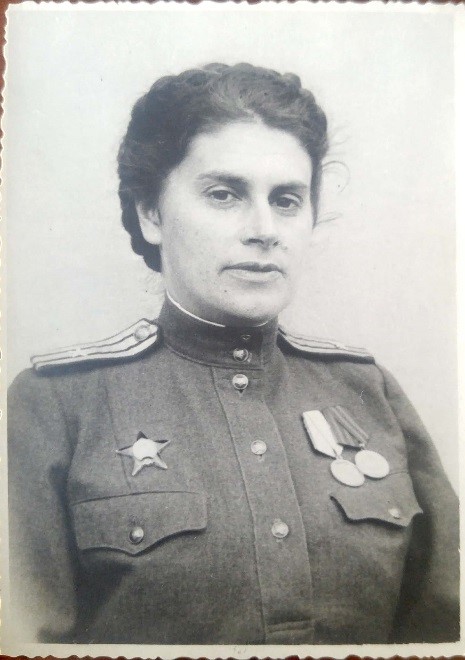Ielizaveta Iakubson was born in 1911 in Romny, Ukraine, the first of three children of the physician Lazar Iakubson. In 1914, her father was drafted into the Czarist army. After World War I and the Russian Revolution, Lazar settled in Rzhev, where he worked as a doctor at the Rzhev railway station clinic. Although the family was not religious, Lazar had mastered the modern Hebrew language, and, in the 1960s, he surprised his grandson, who was visiting him in the provincial town of Rzhev, by listening to Kol Yisrael radio broadcasts in Hebrew. In 1929, Ielizaveta began to attend a medical institute (university) in the nearby regional center of Kalinin (present-day Tver). In 1933, she graduated from this institute. Two years later, she moved to Leningrad (present-day St. Petersburg, Russia), to specialize in laryngology. In 1939, she was drafted into the Red Army and dispatched, as a military doctor, to the Soviet-Finnish (Winter) War. She would not be discharged until 1949.
Following the outbreak of the Soviet-German War in June 1941, Ielizaveta Iakubson continued her military service. Initially, she was a resident doctor at a rear hospital; then, from August 1942 till February 1944, she served as a surgeon and a member of the Army's Military-Medical Commission at a mobile hospital of the 63rd Army; in March 1944, she became a surgeon at a surgical field hospital. Her specialty was face and skull surgery. With the 63rd Army, Ielizaveta Iakubson took part in the Stalingrad Operation. She ended the war in Germany in the rank of captain, and continued her service in Potsdam until 1949. She was awarded the medal "For Battle Merit" (in 1945) and the Order of the Red Star (in 1946, after the end of the war).
Upon her discharge from the Red Army, Ielizaveta Iakubson settled in Leningrad. In 1989, she immigrated to Israel. She died in 2016, aged 105.







